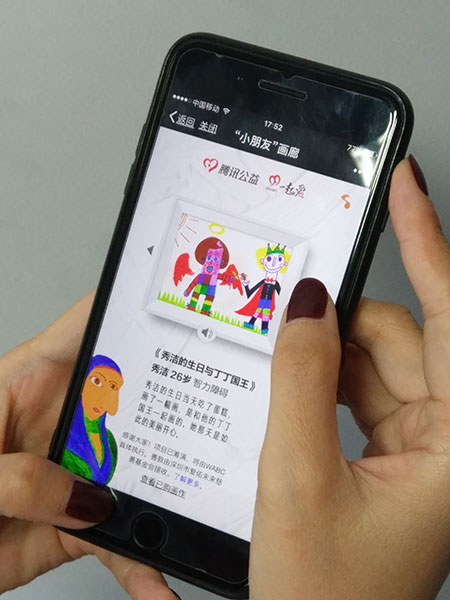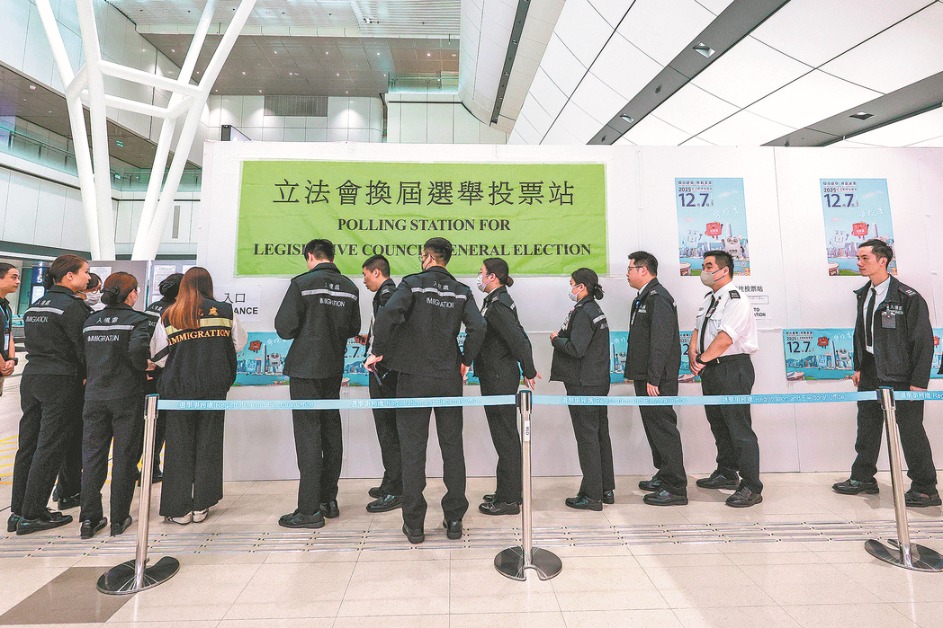Charities get online makeover
By HE WEI | China Daily | Updated: 2017-10-04 06:55
 |
| Images from a charitable virtual gallery are displayed on a smartphone screen. CHINA DAILY |
The Tencent Charity Foundation, an in-house philanthropy fund for the smartphone era, has been at the forefront of social conscience issues.
Even the number of "steps walked" recorded on a mobile can translate into a charitable contribution. Reading out stories for the blind is also a popular cause.
Still, the driving force behind this push to raise money for charities has been Pony Ma, chairman of Tencent.
Last year, he announced the company would donate 2 percent of its annual profit, which in 2016 was 570 million yuan, to social issues.
"Corporate social responsibility has played an increasingly important role in driving philanthropy," Wang at the Shanghai United Foundation said.
"And technologies create demands for transparency and robust organization governance, which in turn reinforces people's trust in such charitable causes initiated by internet firms," Wang added.
This has put charity programs back in the headlines for all the right reasons after a series of scandals in the past.
As a result of public concern, Beijing announced a raft of laws last year, limiting fundraising activities to select online organizations.
Charitable initiatives have since increased with technology titans, such as Pony Ma and Alibaba's founder Jack Ma and Vice-Chairman Joe Tsai, taking the lead.
Jack Ma and Tsai have already pledged share options worth about $3 billion to various good causes.
"The enormous wealth accumulated by the country's internet-made super-rich during the past decades has laid the foundation for current and future charitable acts," said Fu Changbo, assistant director of the China Global Philanthropy Institute in Shenzhen.
At the root of this social conscience revolution is online technology and the adoption of blockchain in the fundraising process.
Alibaba's affiliate, Ant Financial Services Group, keeps a record of donations made to charities on its Ant Love site. This connects Alibaba's 550 million users to 1,000 public welfare institutions in China through Alipay, the group's online payment platform.
Transparency is crucial, with blockchain technology showing donors and charities where and when the funds are being used.
"Any user of the system can see exactly who owns what at any given time, and who has given what to whom," said Li Chao, a fintech, or financial technology, expert at iResearch, a market research and consulting company.
"The net result is that the need for third parties is effectively removed, and so transaction costs can be dramatically cut," Li added.
























